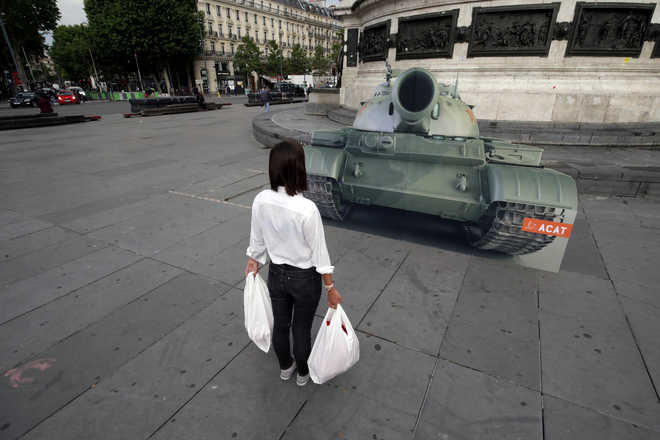Iconic Tiananmen ''Tank Man'' photo was luck: Photographer
Beijing, June 4
The photographer who captured the iconic 'Tank Man' photo after the 1989 Tiananmen Square massacre in Beijing said he considers the picture "lucky" and something that changed his life.
"Many consider 'Tank Man' iconic. I consider it lucky. I was in the wrong place at the right time," the 62-year-old Jeff Widener told Efe news on Tuesday.
Widener was working in Bangkok for the Associated Press at the time and flew to Beijing to cover the student protests against corruption and for a more open and democratic government.
During the standoff, the man blocked the tank which tried to go around him, and at one point climbed onto it, appearing to speak to the driver. The man was pulled away by onlookers, but it is unknown what happened to him.
The photo has become a symbol of peaceful resistance.
The image shows that "photographs can be very powerful and influence peoples' perception about the world", Widener said 30 years after he shot the image.
On the morning of June 5, 1989, and with the help of a student, Widener entered the sixth floor of the Hotel Beijing from where he took the photo some 200 metre away from the square that was under military control.
A picture like that now "would have the same repercussion it had 30 years ago, but there are many citizen journalists, so I think there is an over-saturation of images bombarding people, which numbs the senses", Widener said.
Widener said he never dreamed his photo would generate such a massive reaction.
"The photo changed my life and continues to inspire people today -- except in China where it is banned," he said of the picture for which he was a 1990 Pulitzer Prize finalist.
Controversy broke out in April after German camera company Leica, which partners with China's Huawei, launched a promotional video portraying a man appearing to cover the Tiananmen protests and shoot the "Tank Man" image from a hotel.
The ad was censored on Chinese social media and generated a backlash.
"When I post on Instagram, I receive many negative comments from Chinese officials, but there are also many positive remarks from supporters," he said.
When Widener went to cover the protests, he thought the story was "incredible" but he was also "scared of the outcome".
Commemorations marking the 30th anniversary of the massacre took place worldwide on Tuesday except in China. — IANS









